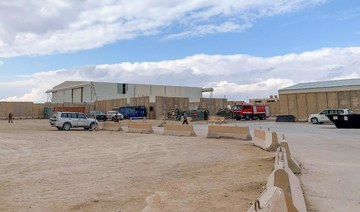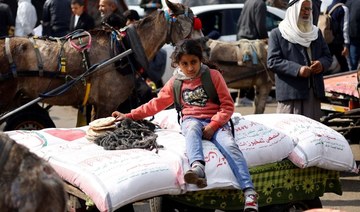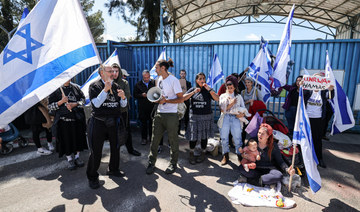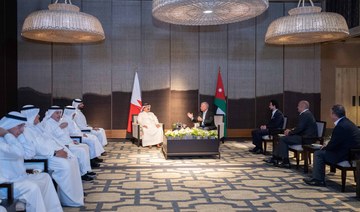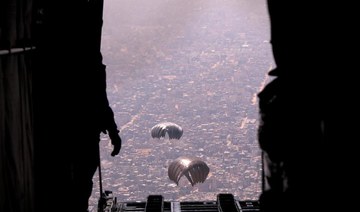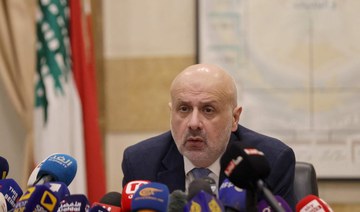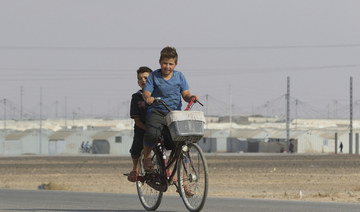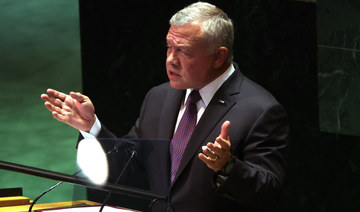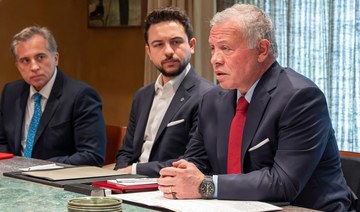KARBALA: A leading Iraqi anti-government activist was killed early Sunday, security sources and activists said, sending supporters of a protest movement onto the streets to demand an end to bloodshed.
Ihab Al-Wazni, a coordinator of protests in the Shiite shrine city of Karbala, was a vocal opponent of corruption, the stranglehold of Tehran-linked armed groups and Iran’s influence in Iraq.
He was shot overnight outside his home by men on motorbikes, in an ambush caught on surveillance cameras. His death was confirmed by security forces and activists.
Wazni narrowly escaped death in December 2019, when men on motorbikes used silenced weapons to kill fellow activist Fahem Al-Tai as he was dropping him home in Karbala, where pro-Tehran armed groups are legion.
Both were key figures in a national protest movement that erupted against government corruption and incompetence in Iraq in October 2019.
Around 600 people were killed as a result of their association with that movement — many on the streets during rallies, others targeted on their doorsteps away from the rallies.
Protests broke out in Karbala, Nassiriya and Diwaniya in southern Iraq in reaction to Wazni’s killing, as people called for an end to the bloodshed and to rampant corruption.
In a video recording in the morgue where his body was initially held, a fellow activist made it clear who he and colleagues blamed for the killing.
“It is the Iranian militias who killed Ihab,” said the unnamed activist. “They are going to kill all of us! They threaten us and the government remains silent.”
Police in Karbala said they “will spare no effort” to find “the terrorists” behind Wazni’s killing.
Politicians, including Shiite leader Ammar Al-Haki, deplored the killing and called for justice.
Around 30 activists have died in targeted killings and dozens of others abducted, some detained briefly, since October 2019.
Such targeted killings are normally carried out in the dead of night by men on motorbikes, and nobody claims responsibility.
Activists and the UN repeatedly blame “militias.”
Authorities have consistently failed to identify the perpetrators of these political killings.
Prime Minister Mustafa Al-Kadhemi took office a year ago, vowing to rein in rogue factions, fight corruption and roll out long-awaited reforms after years of war and insurgency.
Pro-Iran groups view the premier as being too close to Washington and protesters believe he has failed to deliver on his promises.
“Such crimes against activists in Iraq raise again the question about the real steps of the government regarding accountability for... (those) responsible for crimes” targeting protesters, Ali Bayati, a member of Iraq’s Human Rights Commission, tweeted Sunday.
Wazni had himself challenged Kadhemi in a Facebook post in February, asking rhetorically: “Do you know what is going on? You know that they kidnap and kill — or you live in another country?“
Iraqi activist’s killing sparks protests against impunity
https://arab.news/vx4jw
Iraqi activist’s killing sparks protests against impunity
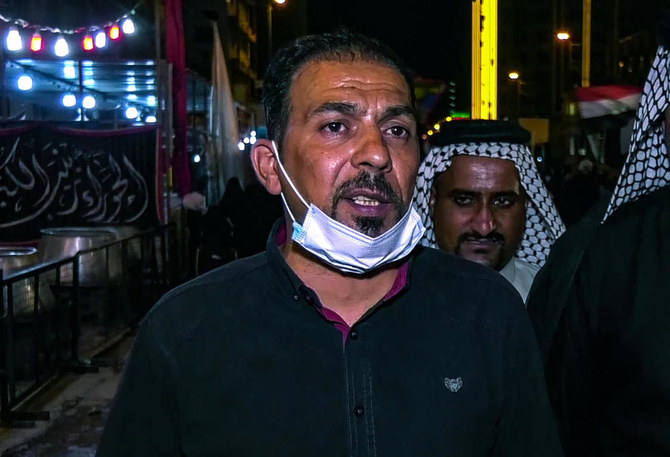
- Ihab Al-Wazni, a coordinator of protests in the Shiite shrine city of Karbala, was a vocal opponent of corruption
- He was shot overnight outside his home by men on motorbikes, in an ambush caught on surveillance cameras
Call to close UNRWA is attempt to strip Palestinians of refugee status — agency chief
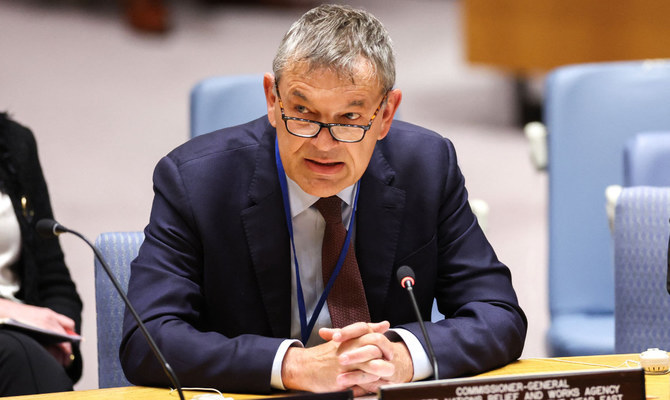
- Philippe Lazzarini tells Security Council demise of agency would also accelerate onset of famine in Gaza, and jeopardize transition from a ceasefire to recovery
- Meeting of the council requested by Jordan in response to long-running, continual attempts by Israel to force the agency out of Gaza and have it dismantled entirely
NEW YORK CITY: Disbanding the UN Relief and Works Agency for Palestine Refugees would have lasting repercussions for millions of Palestinians because it would result in them being stripped of their refugee status, the head of the agency told the Security Council on Wednesday.
Philippe Lazzarini warned it would also accelerate the onset of famine in Gaza, and jeopardize the eventual transition from a ceasefire to recovery by depriving a traumatized population of the essential services it requires.
Some of the ramifications would be long term, he added: “It will make impossible the formidable task of bringing half a million deeply distressed girls and boys back to learning. Failing to deliver on education will condemn an entire generation to despair, fueling anger, resentment, an endless cycle of violence.”
The meeting of the council was requested by Jordan in response to long-running, continual attempts by Israeli authorities to force the agency out of Gaza, and have it dismantled entirely.
It began with a minute’s silence in honor of the 178 UNRWA employees killed during the war in Gaza.
The agency has been facing great challenges not only in its efforts to provide humanitarian assistance to Palestinian civilians in Gaza, but also in ensuring it is able to continue its operations more generally.
More than 163 UNRWA installations in the Gaza Strip have been damaged during the war between Israel and Hamas, and only nine of its 24 healthcare facilities remain operational.
Meanwhile, the agency has been in a precarious financial position for some time, in part because of the decision by some major donor nations to suspend the funding they provide for the agency, which threatened to bring its operations grinding to a halt.
Several countries put their donations on hold after Israeli authorities alleged in January, without providing any supporting evidence, that 12 UNRWA workers had played a role in the Oct. 7 attacks by Hamas on Israel.
The agency terminated the contracts of the employees identified in the allegations, and the Office of Internal Oversight Services, the UN’s main investigative body, launched an inquiry at the request of UN Secretary-General Antonio Guterres.
Separately, the UN also ordered an independent review, led by the French former minister of foreign affairs, Catherine Colonna, of the steps the agency takes to uphold the principle of neutrality among its workers. The review group is expected to present its findings on April 20.
Lazzarini told council members on Wednesday that the real reason behind the Israeli calls for UNRWA to be closed down is not about its adherence to humanitarian principles, it is an attempt to end the refugee status of millions of Palestinians. The true aim is to change the long-standing political parameters for peace in the Occupied Palestinian Territories, he added.
“Accusations that UNRWA has deliberately perpetuated Palestinians’ refugee status are false and dishonest,” Lazzarini said. “The agency exists because a political solution does not. It exists in lieu of a state that can deliver critical public services.
“The international community has long attempted to contain, rather than resolve, the Israeli-Palestinian conflict. Lip service is paid to the two-state solution each time an escalation occurs, costing lives and hope.
“UNRWA was created 75 years ago as a temporary agency, a stop-gap measure, pending a political answer to the question of Palestine.
“If the international community truly commits to a political solution, UNRWA can retrieve its temporary nature by supporting a time-bomb transition, delivering education, primary healthcare and social support. It can do so until a Palestinian administration takes over the services.”
Russia’s permanent representative to the UN, Vasily Nebenzia, called on the Security Council to consider, as a matter of urgency, imposing sanctions on Israel for its failure to implement the council’s recent ceasefire resolution.
“Everyone knows about the facts, the unthinkable statistics, the number of people dead and those in need of urgent food and medical assistance, as well as reported cases of people dying of famine and dehydration, including minors,” he said.
“The IDF (Israel Defense Forces) is blocking half of humanitarian convoys, yet aid supplies are waiting at the border. We warned time and time again that in the absence of a lasting, sustainable ceasefire, which must be duly monitored by military observers, all of our humanitarian efforts are doomed.”
The US deputy ambassador to the UN, Robert Wood, said the conflict in Gaza has been one of the worst in recent memory in terms of the number of aid workers killed, with the total standing at more than 240 since Oct. 7.
“These incidents are unacceptable. Humanitarian personnel must be protected, full stop,” he said, and he expressed deep concern that “Israel has not done enough to protect humanitarian aid workers or civilians.”
Wood added: “UNRWA plays a crucial role throughout the region, contributes to stability of the region and supporting Palestinian refugees, to educating hundreds of thousands of students, to providing primary healthcare and critical relief and social services.
“UNRWA is the bedrock of support for the most vulnerable Palestinian refugees in Jordan, Lebanon, Syria and the West Bank. The United States supports this important work and emphasizes that it must continue uninterrupted.”
Call to close UNRWA is attempt to strip millions of Palestinians of refugee status: agency chief
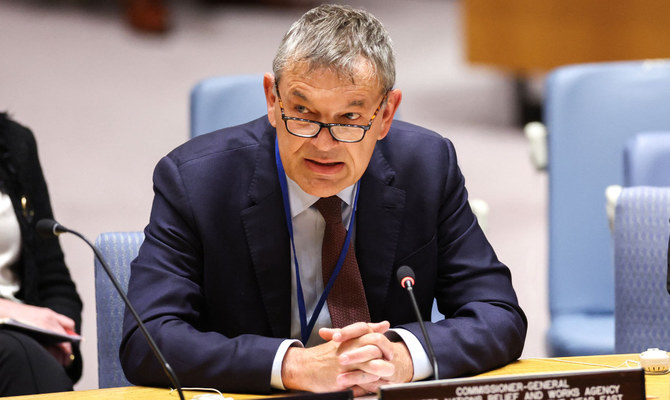
- Philippe Lazzarini tells Security Council demise of agency would also accelerate onset of famine in Gaza, and jeopardize transition from a ceasefire to recovery
- Meeting of the council requested by Jordan in response to long-running, continual attempts by Israel to force the agency out of Gaza and have it dismantled entirely
NEW YORK CITY: Disbanding the UN Relief and Works Agency for Palestine Refugees would have lasting repercussions for millions of Palestinians because it would result in them being stripped of their refugee status, the head of the agency told the Security Council on Wednesday.
Philippe Lazzarini warned it would also accelerate the onset of famine in Gaza, and jeopardize the eventual transition from a ceasefire to recovery by depriving a traumatized population of the essential services it requires.
Some of the ramifications would be long term, he added: “It will make impossible the formidable task of bringing half a million deeply distressed girls and boys back to learning. Failing to deliver on education will condemn an entire generation to despair, fueling anger, resentment, an endless cycle of violence.”
The meeting of the council was requested by Jordan in response to long-running, continual attempts by Israeli authorities to force the agency out of Gaza, and have it dismantled entirely.
It began with a minute’s silence in honor of the 178 UNRWA employees killed during the war in Gaza.
The agency has been facing great challenges not only in its efforts to provide humanitarian assistance to Palestinian civilians in Gaza, but also in ensuring it is able to continue its operations more generally.
More than 163 UNRWA installations in the Gaza Strip have been damaged during the war between Israel and Hamas, and only nine of its 24 healthcare facilities remain operational.
Meanwhile the agency has been in a precarious financial position for some time, in part because of the decision by some major donor nations to suspend the funding they provide for the agency, which threatened to bring its operations grinding to a halt.
Several countries put their donations on hold after Israeli authorities alleged in January, without providing any supporting evidence, that 12 UNRWA workers had played a role in the Oct. 7 attacks by Hamas on Israel.
The agency terminated the contracts of the employees identified in the allegations, and the Office of Internal Oversight Services, the UN’s main investigative body, launched an inquiry at the request of UN Secretary-General Antonio Guterres.
Separately, the UN also ordered an independent review, led by the French former minister of foreign affairs, Catherine Colonna, of the steps the agency takes to uphold the principle of neutrality among its workers. The review group is expected to present its findings on April 20.
Lazzarini told council members on Wednesday that the real reason behind the Israeli calls for UNRWA to be closed down is not about its adherence to humanitarian principles, it is an attempt to end the refugee status of millions of Palestinians. The true aim is to change the long-standing political parameters for peace in the Occupied Palestinian Territories, he added.
“Accusations that UNRWA has deliberately perpetuated Palestinians’ refugee status are false and dishonest,” Lazzarini said. “The agency exists because a political solution does not. It exists in lieu of a state that can deliver critical public services.
“The international community has long attempted to contain, rather than resolve, the Israeli-Palestinian conflict. Lip service is paid to the two-state solution each time an escalation occurs, costing lives and hope.
“UNRWA was created 75 years ago as a temporary agency, a stop-gap measure, pending a political answer to the question of Palestine.
“If the international community truly commits to a political solution, UNRWA can retrieve its temporary nature by supporting a time-bomb transition, delivering education, primary healthcare and social support. It can do so until a Palestinian administration takes over the services.”
Russia’s permanent representative to the UN, Vasily Nebenzia, called on the Security Council to consider, as a matter of urgency, imposing sanctions on Israel for its failure to implement the council’s recent ceasefire resolution.
“Everyone knows about the facts, the unthinkable statistics, the number of people dead and those in need of urgent food and medical assistance, as well as reported cases of people dying of famine and dehydration, including minors,” he said.
“The IDF (Israel Defense Forces) is blocking half of humanitarian convoys, yet aid supplies are waiting at the border. We warned time and time again that in the absence of a lasting, sustainable ceasefire, which must be duly monitored by military observers, all of our humanitarian efforts are doomed.”
The US deputy ambassador to the UN, Robert Wood, said the conflict in Gaza has been one of the worst in recent memory in terms of the number of aid workers killed, with the total standing at more than 240 since Oct. 7.
“These incidents are unacceptable. Humanitarian personnel must be protected, full stop,” he said, and he expressed deep concern that “Israel has not done enough to protect humanitarian aid workers or civilians.”
Wood added: “UNRWA plays a crucial role throughout the region, contributes to stability of the region and supporting Palestinian refugees, to educating hundreds of thousands of students, to providing primary healthcare and critical relief and social services.
“UNRWA is the bedrock of support for the most vulnerable Palestinian refugees in Jordan, Lebanon, Syria and the West Bank. The United States supports this important work and emphasizes that it must continue uninterrupted.”
Jordan says Israeli retaliation for Iran strikes risks wider regional war
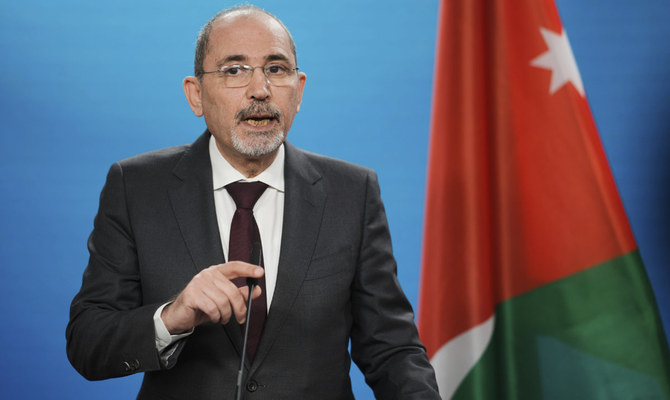
- Safadi warned that his country would act firmly in the event of another flare-up and that Jordan would not allow “either Iran or Israel to turn the kingdom into a battlefield”
AMMAN: Jordan’s Foreign Minister Ayman Safadi said on Wednesday an Israeli retaliation against Iranian strikes could bring a real risk of dragging the whole region into a devastating war.
In an interview released by state media, Safadi said his country was lobbying major powers against an escalation that would have far-reaching consequences for regional stability and security.
“The risks are enormous. That could drag the whole region into war, which would be devastating to us in the region and we’ll have very, very serious implications for the rest of the world including the U.S,” Safadi said.
“The situation is too dangerous. The chances of regional explosion are real, and that has got to stop. We’ve got to make sure there’s no further escalation,” he added.
Staunch US ally Jordan, with the help of American air defenses and support from the UK and France, shot down most of the Iranian drones and missiles that were flying over the country toward Jerusalem and a wide range of targets in Israel.
“Now the pressure should be on Israel not to escalate,” Safadi said, adding Tehran had said it attacked in retaliation for a suspected Israeli airstrike on its embassy compound in Damascus on April 1 and would not go further unless Israel responded.
Jordan neighbors Syria and Iraq – both countries where Iranian proxy forces operate – and is next door to Israel and the Israeli-occupied West Bank
“We are in the middle of the fire, so both parties have to understand that we’ll do what we have to do to protect our own, and to prevent this escalation,” Safadi said.
Safadi warned that his country would act firmly in the event of another flare-up and that Jordan would not allow “either Iran or Israel to turn the kingdom into a battlefield.”
“We will take down any projectiles that threaten our peoples and violate our sovereignty, and pose a threat to Jordanians. And we made this clear to both Israel and Iran,” he said.
Iranian drones that came from the direction of Iraq and flew over southern Jordan and the city of Aqaba that were heading to Israel’s Eilat port were also intercepted.
Israeli Prime Minister Benjamin Netanyahu was using the confrontation with Iran to divert attention from Gaza, Safadi said. The Israeli leader should not be allowed to drag “Washington and major Western powers into a war with Iran,” he added.
Why displaced Syrians in Lebanon face an agonizing dilemma amid mounting hostility
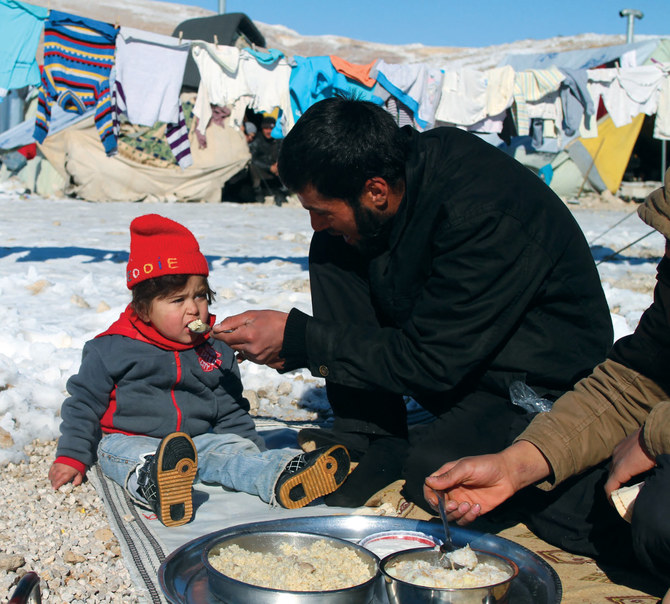
- Lebanon hosts the greatest number of refugees per capita of any country in the world, placing additional strain on its economy
- The recent murder of a Lebanese Forces party official has triggered a fresh wave of violence and vitriol against Syrians
LONDON: Syrian refugees in Lebanon are in an impossible fix, unable to safely return home while also facing mounting hostility from host communities and local authorities, especially following the death of a Lebanese Forces party official, allegedly at the hands of Syrian criminals.
Pascal Suleiman, the Byblos District coordinator of the Christian-based party, was reportedly kidnapped and later killed in a Syrian area near the Lebanese border. Seven Syrian nationals were arrested on suspicion of killing Suleiman in what was dubbed a botched carjacking.
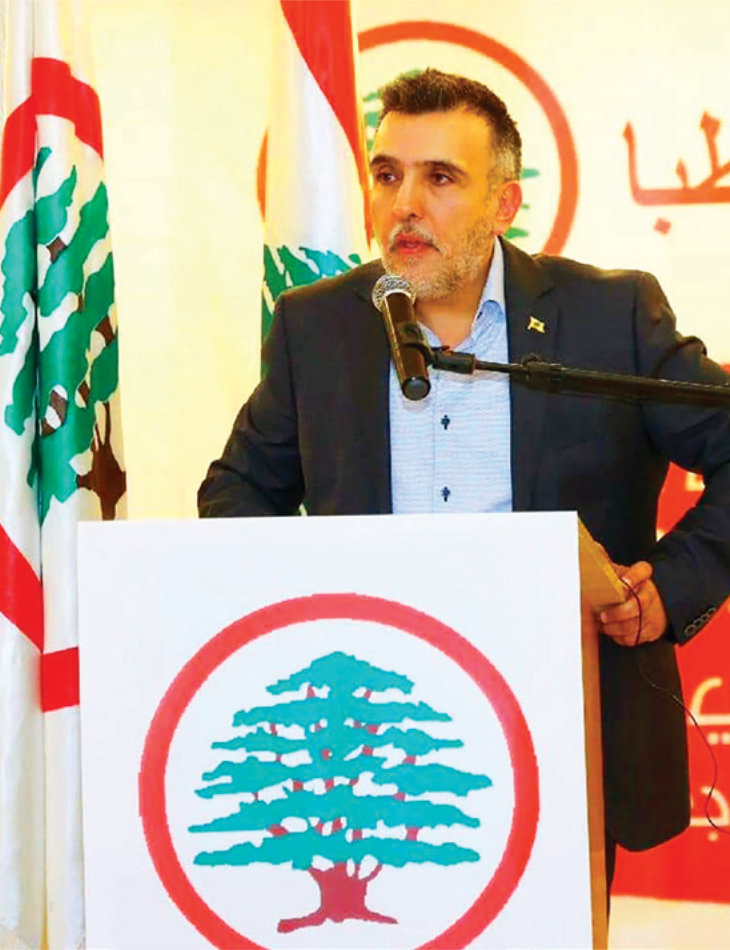
The Lebanese Forces and its allies were not fully convinced that Syrians were behind the killing, which took place in an area controlled by its Hezbollah rivals, suggesting that Lebanese authorities were using the Syrians as a convenient patsy.
Although the scapegoating of Syrians in Lebanon has been commonplace since the Syrian civil war began in 2011, dispersing millions of refugees throughout the region, the murder of Suleiman has triggered a fresh wave of violence and vitriol against displaced households.
INNUMBERS
90% Syrian households in Lebanon living in extreme poverty.
52% Live in dangerous, sub-standard or overcrowded shelters. 80% Lack legal residency, leaving them vulnerable to exploitation.
100k Resettled from Lebanon to third countries since 2011.
Haneen, a Syrian university student whose name has been changed for her safety, described recently witnessing a group of Lebanese men assaulting and hurling abuse at a man they labeled “Souri” (Syrian).
“The slaps were so loud, I felt as if they were falling on my face,” she told Arab News.
Videos have emerged on social media in recent days showing Lebanese Forces supporters venting their fury on random Syrians in the street — many of them refugees. Angry mobs also vandalized cars with Syrian license plates and looted Syrian-owned businesses.
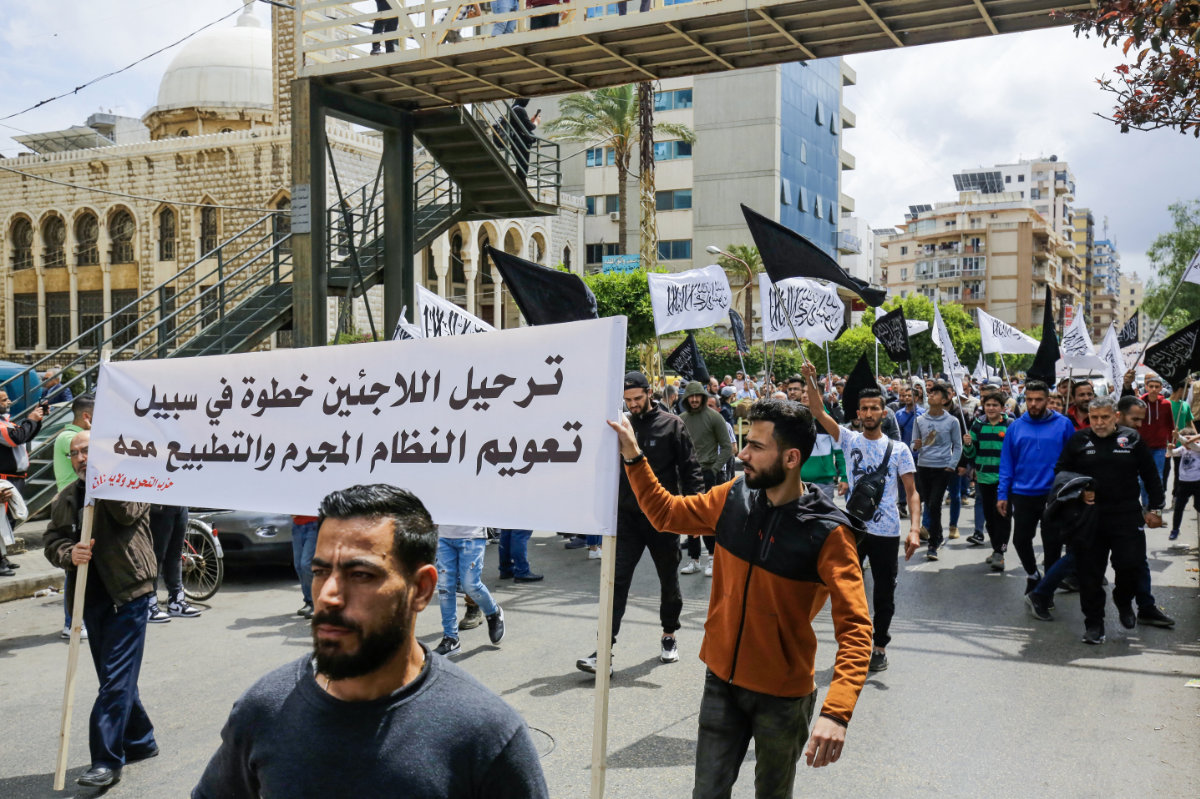
Other videos showed Lebanese men on motorcycles roaming the streets in various parts of the country, including Keserwan and Burj Hamoud, where they ordered Syrian occupants to leave their homes and businesses within 48 hours.
Intercommunal tensions in Lebanon have been stoked further by the rhetoric of Lebanese politicians, who frequently blame the country’s many ills on the presence of more than 1.5 million Syrian refugees.
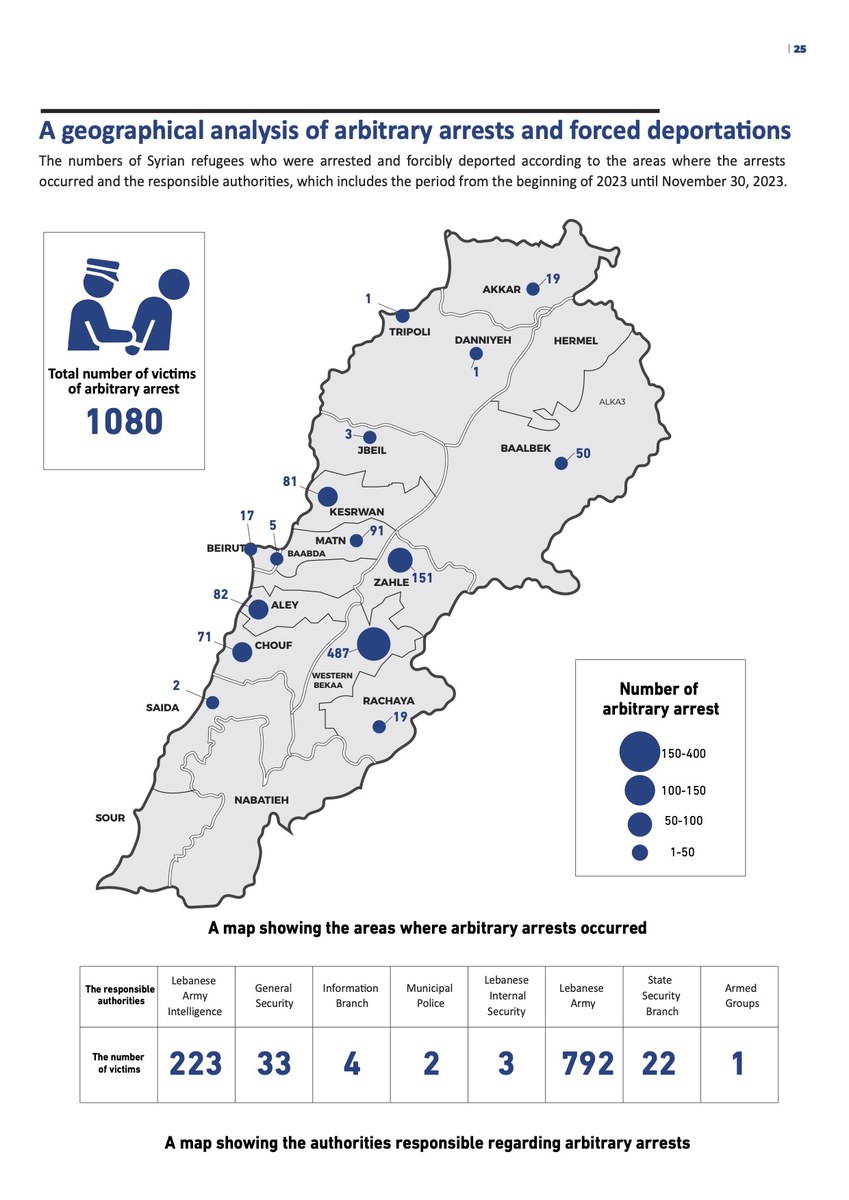
Between April and May 2023, the Lebanese army arbitrarily arrested and deported thousands of Syrians, according to Human Rights Watch.
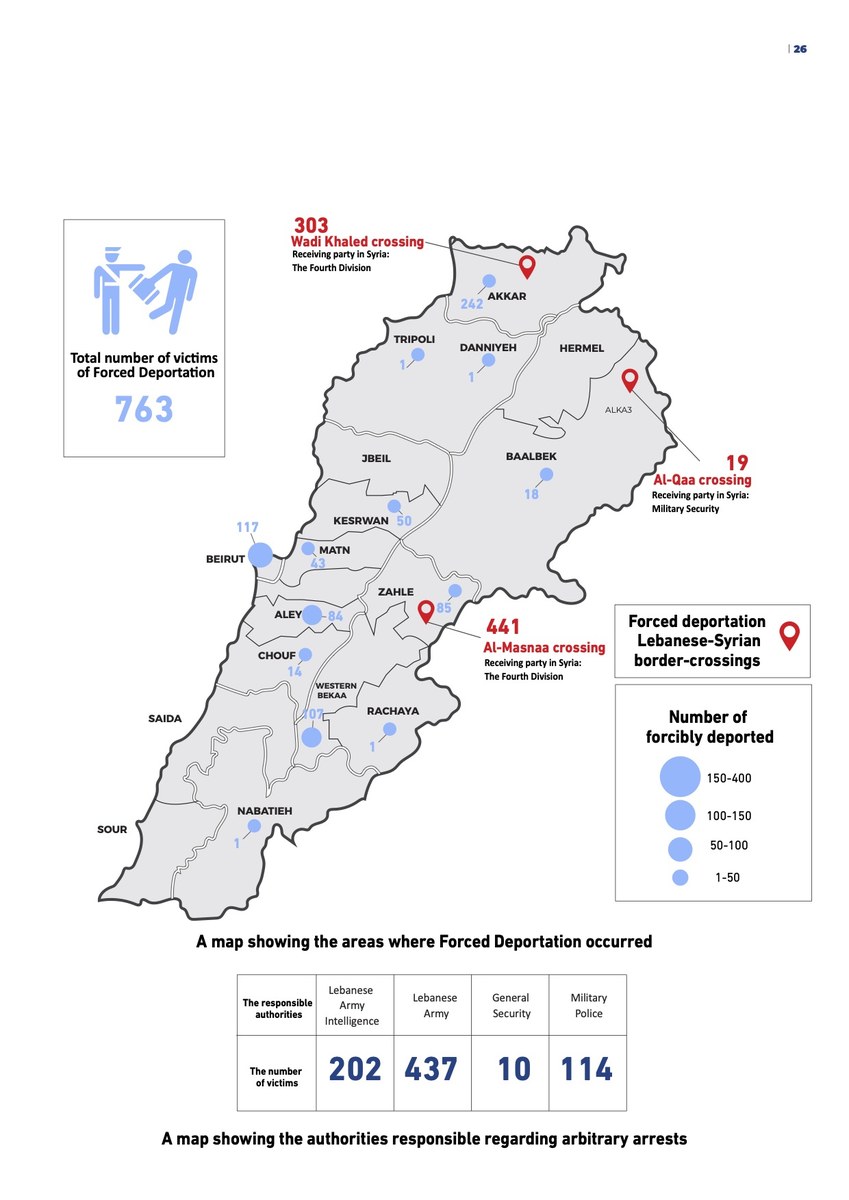
In a recent press conference, Bassam Mawlawi, the acting interior minister, said the country “will become stricter in granting residency permits and dealing with (Syrians) residing in Lebanon illegally.”
He claimed that “many crimes are being committed by Syrians” and stressed that the “Syrian presence in Lebanon can no longer be tolerated and is unacceptable.”
In October last year, he even sought to portray Syrian refugees as a danger to the country’s “existence” and “a threat to Lebanon’s demographics and identity.”
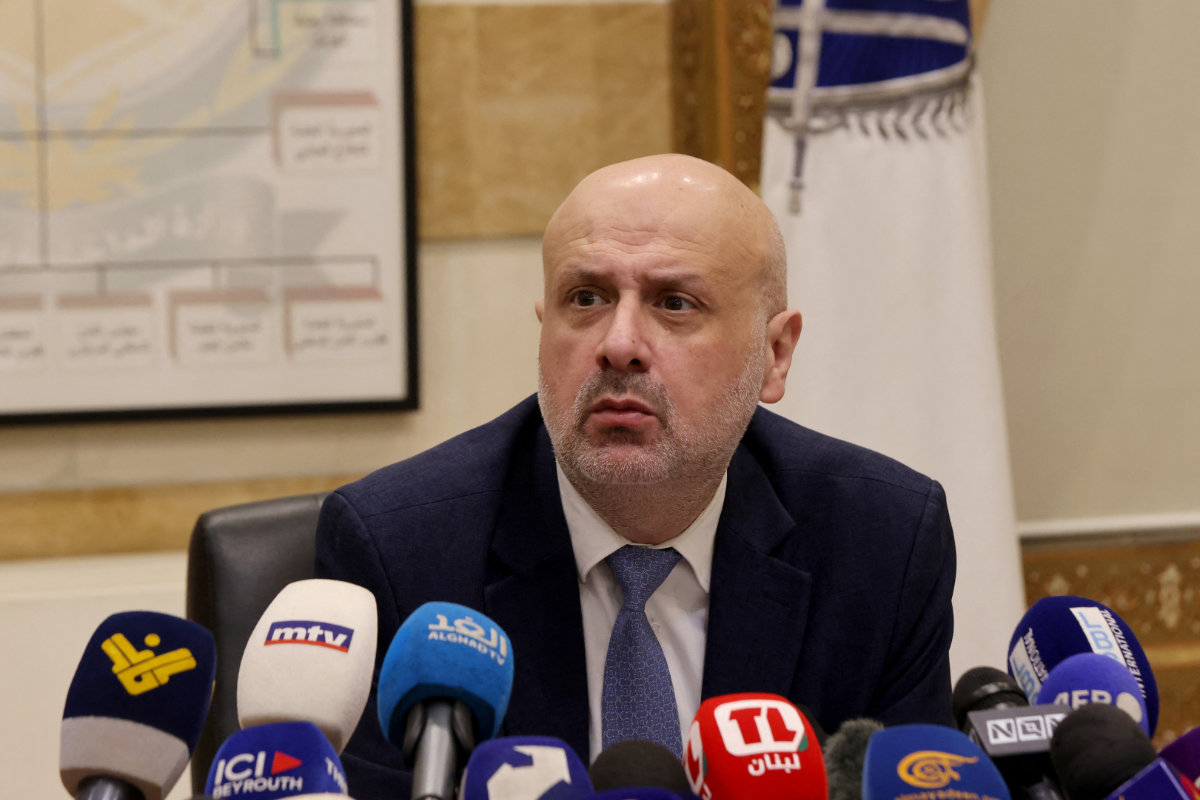
Echoing these sentiments was Abdallah Bou Habib, the acting foreign minister, who during a visit to the Greek capital Athens on April 8 described the number of Syrians in Lebanon as “a problem.”
Just days before Suleiman’s death, Amin Salam, Lebanon’s economy minister, said the caretaker government should declare a “state of emergency” regarding Syrian refugees.
Karam Shaar, a senior fellow at the Newlines Institute for Strategy and Policy, a nonpartisan Washington think tank, said Lebanese politicians were showing signs of “hysteria” over the Syrian presence in Lebanon.
ALSO READ: Lebanon PM warns Syrian refugees pose ‘danger to the nation’
While “part of that is understandable and fair,” Shaar told Arab News that “part of it is just Lebanese politicians scapegoating their failures and pinning them on Syrians.”
Omar Al-Ghazzi, an associate professor of media and communications at the London School of Economics, acknowledged that the influx had “made long-standing economic problems worse, whether in terms of infrastructure, public services and unemployment, particularly as Lebanese leaders stand accused of making financial profit from international aid.
“However, rather than blaming leaders and the political system for the collapsed economy in Lebanon, it became a convenient narrative to blame Syrians.”
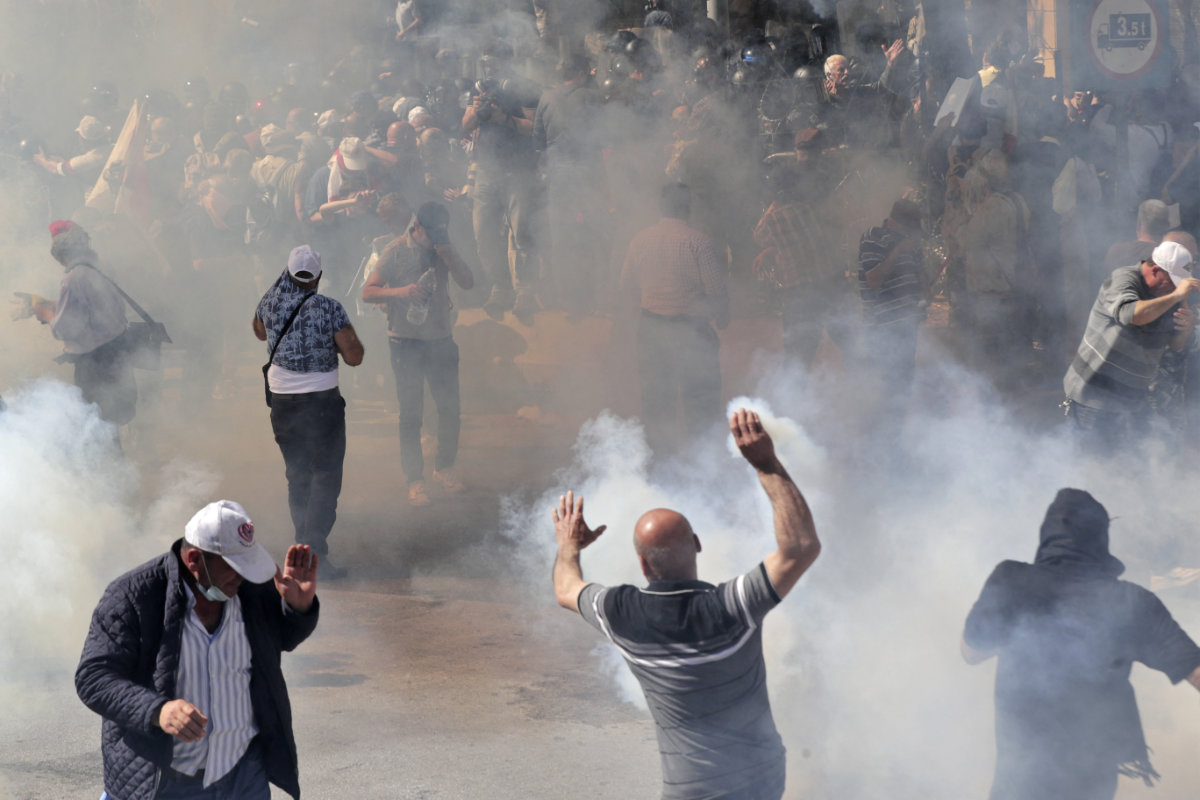
Furthermore, he told Arab News: “Sunni-Shiite tensions during the Syrian war, and Christian fears of Muslim dominance, have made any discussion of Syrian refugees take the form of a toxic and violent discourse — as if anti-Syrianness is the one thing that the divided Lebanese could agree on.”
Anti-Syrian sentiments in Lebanon did not first emerge with the influx of refugees after 2011. They have far deeper historical roots.
“Since Lebanon’s independence, Lebanese political culture has sustained a sense of superiority over the country’s Arab neighbors, mainly Palestinians and Syrians, as well as a sense of being threatened by their presence and influence,” said Al-Ghazzi.
“Following the end of the Lebanese civil war, the hegemony of the Syrian regime in Lebanon exacerbated an anti-Syrianness that often took the shape of discrimination against Syrian laborers.”
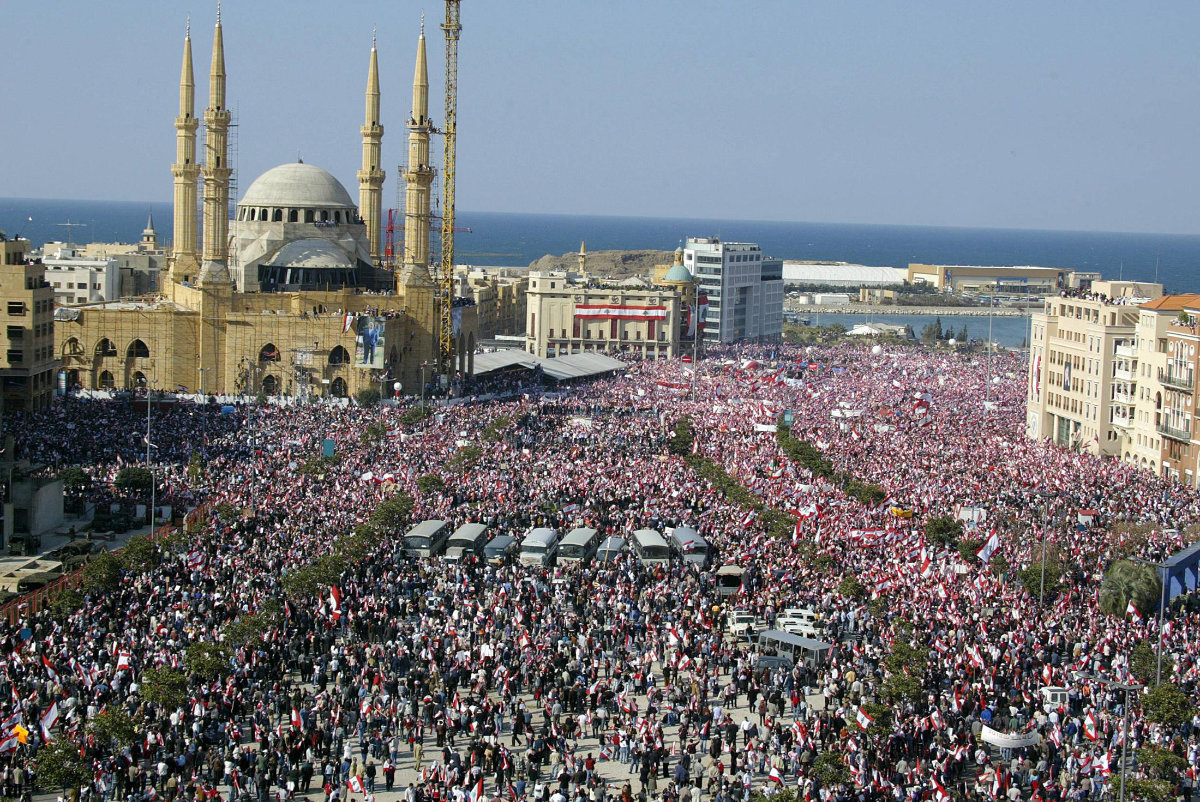
However, Al-Ghazzi believes “this renewed racism cannot be separated from the rise of fascism and anti-immigrant sentiment in the West that gives legitimacy to nationalist chauvinism on a global scale.
“Sadly, it is marginalized and vulnerable Syrians who are paying the price of this politics. In Lebanon, they face daily acts of discrimination, humiliation and violence as they have to confront bleak prospects whether they stay in Lebanon, attempt illegal migration to Europe, or go to Syria.”
The arrival of Syrian refugees over the past decade has placed a burden on Lebanon’s already stretched services and infrastructure.
Lebanon hosts the greatest number of refugees per capita of any country in the world, according to Lisa Bou Khaled, spokesperson for the UN Refugee Agency, UNHCR, in Lebanon.
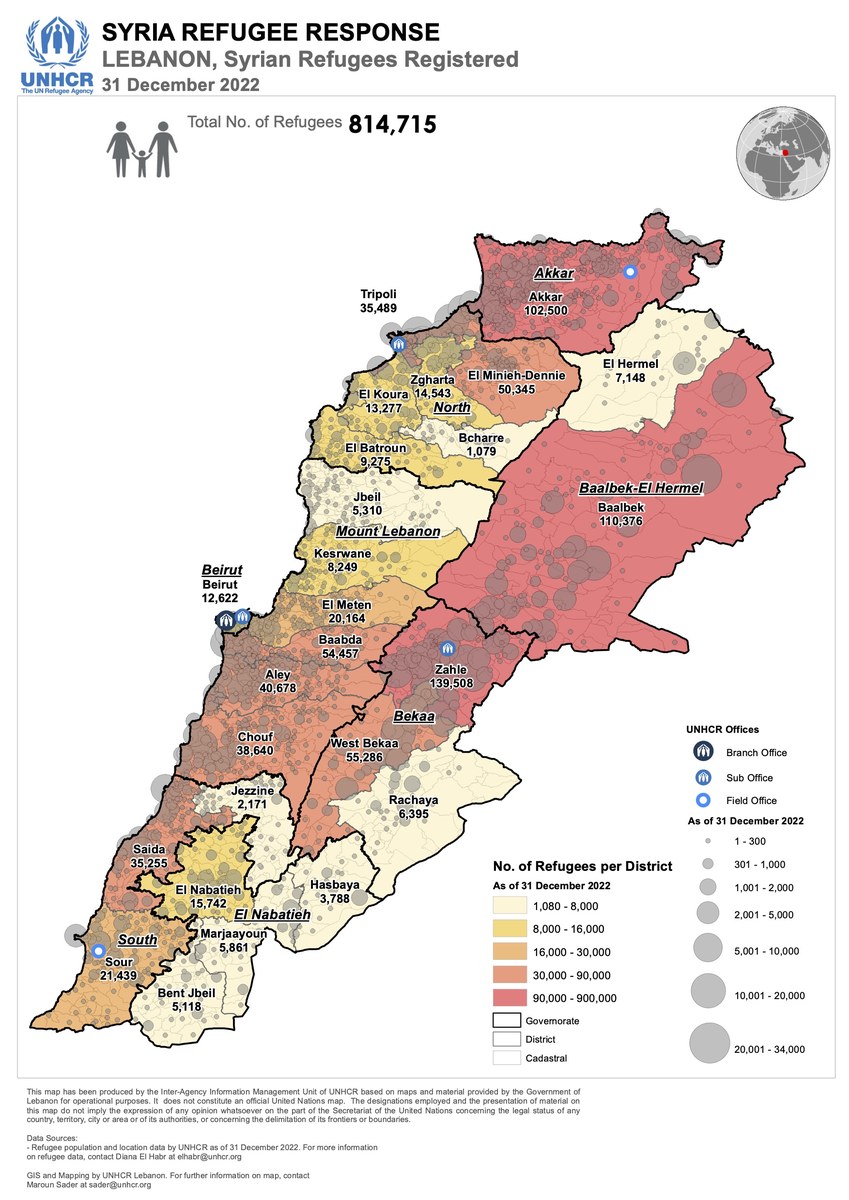
“UNHCR fully recognizes the impact this is having on the country, notably while it is facing the worst economic crisis in its modern history, pushing the most vulnerable to the brink,” she told Arab News.
Likewise, Shaar of the Newlines Institute said: “Lebanon’s economy is actually struggling, and yet the number of Syrians is on the rise — just from natural increases. So, the problem that Lebanon faces is real.”
He stressed the need for “a systemic solution to this crisis — a concerted effort to actually address it because otherwise, my main worry is that there will be more xenophobic rhetoric and attacks against Syrians.”
In the last five years, Lebanon’s currency has lost more than 98 percent of its value, according to the World Bank. The spillover from the ongoing war in Gaza has also dealt a major blow to the country’s stability.
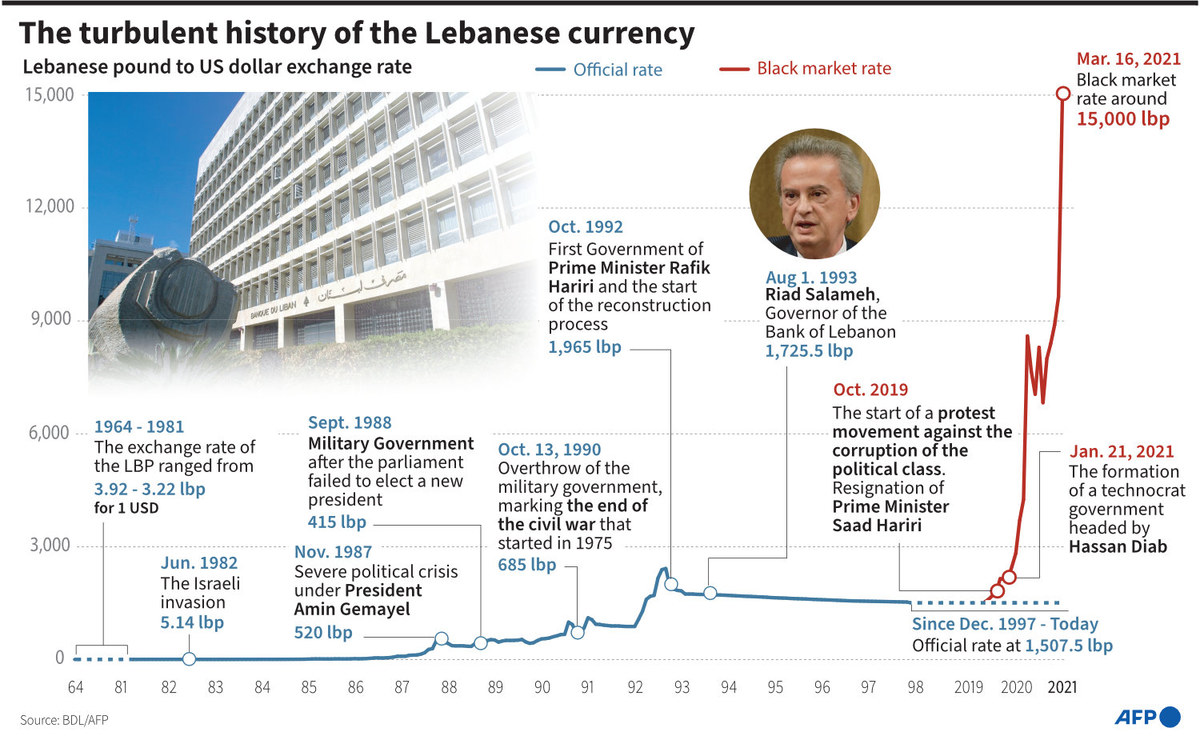
To make matters worse, funding for UN agencies to assist displaced communities is drying up fast amid the world’s multiple, overlapping humanitarian emergencies.
According to Bou Khaled, “in 2024, UNHCR and the World Food Programme are able to assist 88,000 fewer refugee families than in 2023 with cash and food assistance, reflecting a 32 percent decrease in the number of beneficiaries.”
Syrian refugees in Lebanon are among the most vulnerable populations, with approximately 90 percent of households living in extreme poverty and 80 percent lacking legal residency.
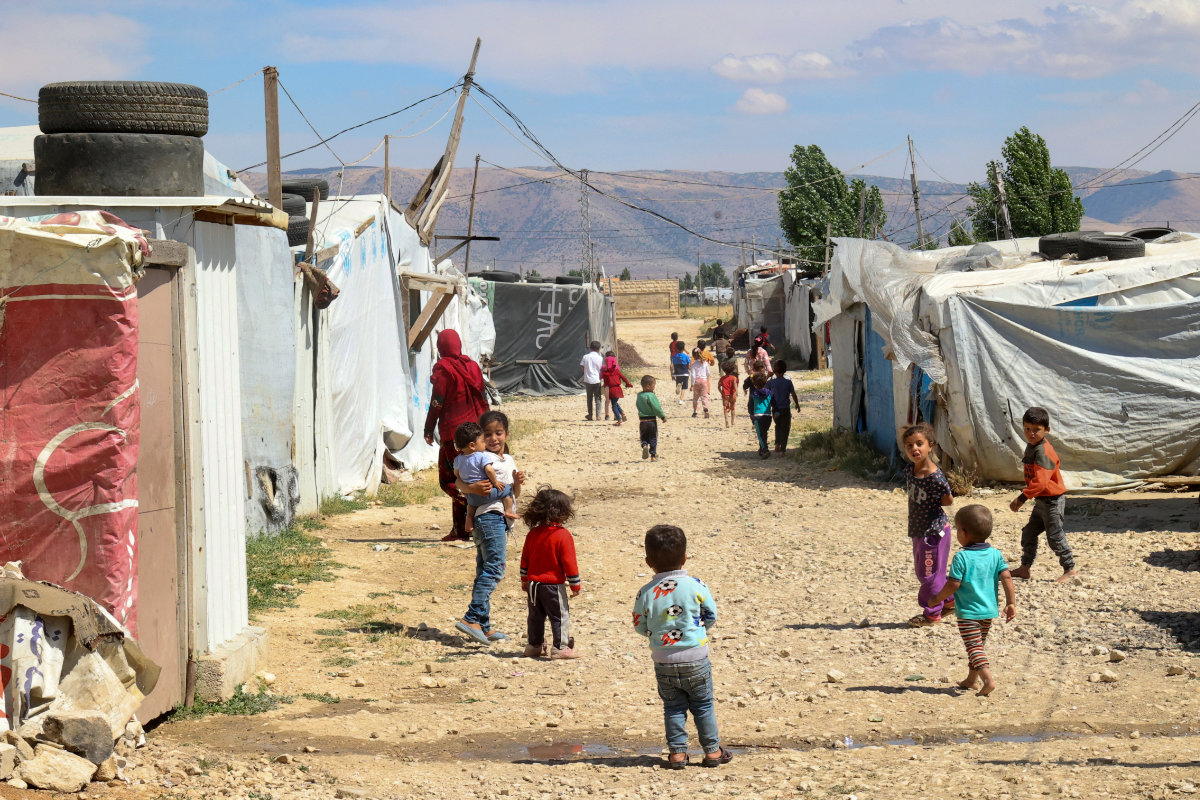
Jasmin Lilian Diab, director of the Institute for Migration Studies at the Lebanese American University, said that “depriving Syrian refugees of proper documentation not only violates their fundamental human rights but also exacerbates their vulnerability.
“Without legal status, refugees face barriers accessing essential services such as healthcare, education, and employment, further marginalizing them within Lebanese society,” she told Arab News.
“This lack of documentation also increases the risk of exploitation, abuse, and detention, leaving refugees without legal recourse or protection. More recently, this has made them increasingly vulnerable to deportation amid ongoing raids and crackdowns.”
For Bou Khaled of UNHCR, housing is also a major concern. “More than half of the Syrian population (52 percent) live in dangerous, sub-standard or overcrowded shelters with the worst/most dangerous conditions reported in Mount Lebanon, (the) south and Beirut,” she said.
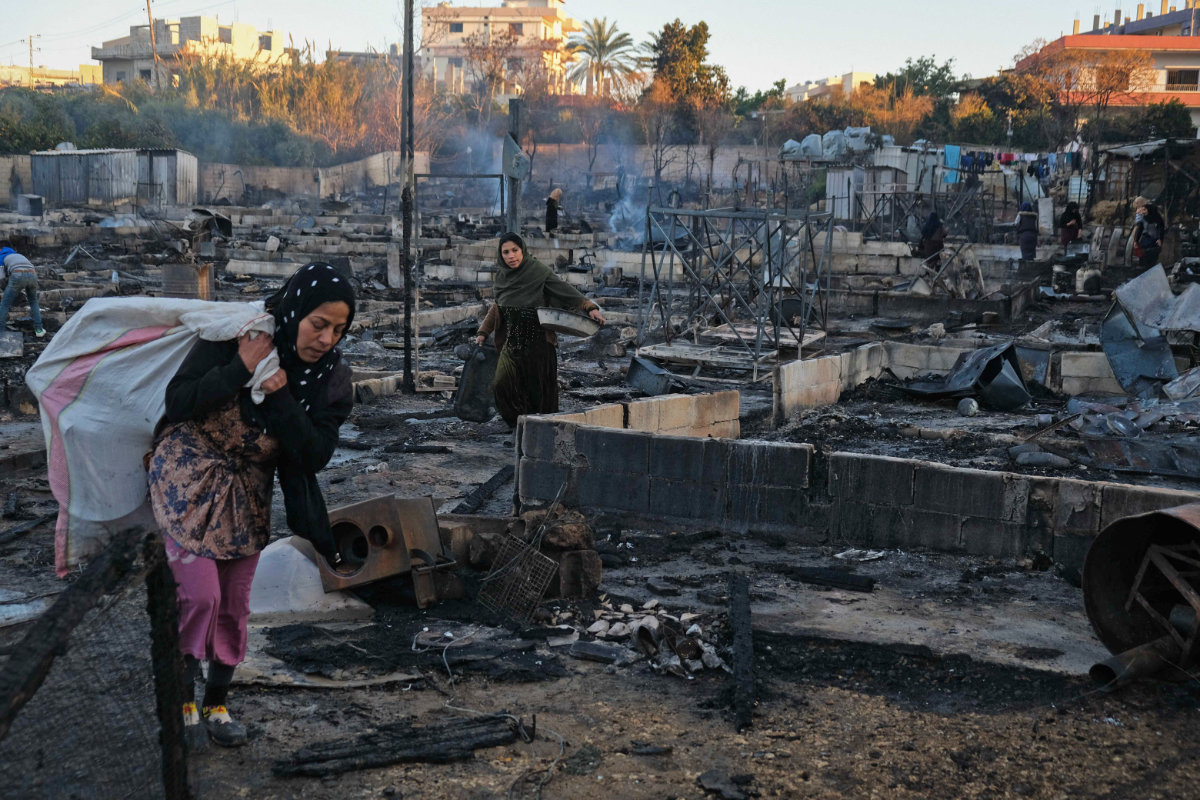
In March, a huge fire broke out in a Syrian refugee camp in Wadi Al-Arnab in the northeastern town of Arsal. The inferno, reportedly caused by an electrical fault, devoured more than 36 makeshift tents.
The fire was only the latest in a series of similar incidents to befall this vulnerable population. A similar blaze occurred in Hanine in Bint Jbeil District during a heatwave in July 2023, while another broke out in October 2022, reducing 93 tents to ashes.
Those living in rented accommodation are hardly better off. Average monthly rents in Lebanese pounds have “increased by 553 percent in 2023; from LBP 863,000 in 2022 to over 5.6 million LBP in 2023,” said Bou Khaled.
For Syrian refugees, unable to live under these circumstances but too frightened to return home, where they might face arrest, persecution, or conscription by the regime or one of the country’s armed factions, the most practical way out seems to be onward migration.
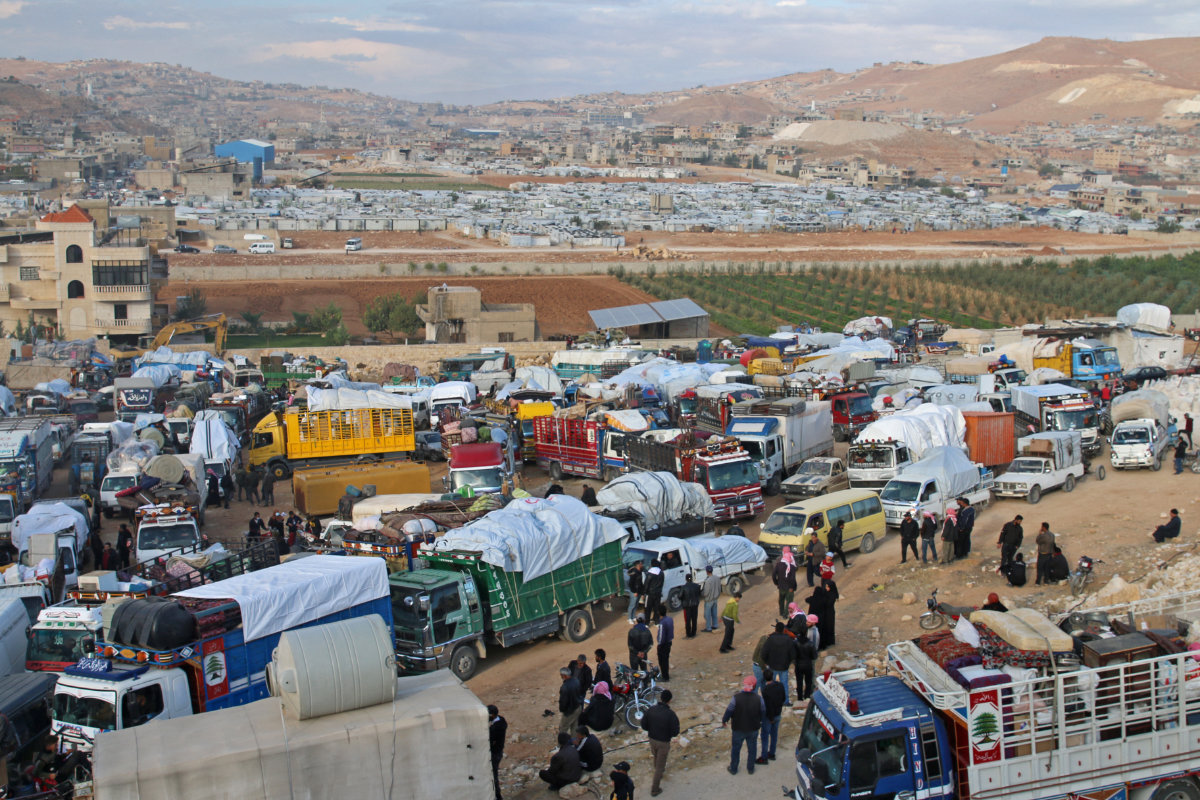
“UNHCR does not hinder the return of refugees to Syria,” said Bou Khaled. The UN agency “is also actively working to support durable solutions for Syrian refugees, including resettlement to third countries, and return to Syria.”
She added: “Resettlement allows responsibility sharing and show of solidarity with host countries like Lebanon, supporting large refugee populations.” This, however, “depends on quotas UNHCR receives by resettlement countries.
“Overall, since 2011 and up to the end of 2023, about 100,000 refugees have been resettled from Lebanon to third countries. In 2023, there was a 9.25-percent increase in resettlement departures when compared to 2022, and the highest number recorded since 2017.”
For many Syrians in Lebanon, onward migration through legal routes is out of reach. Hundreds have instead resorted to making the dangerous sea journey to the EU’s easternmost state, Cyprus, which is a mere 160 km from Lebanon.
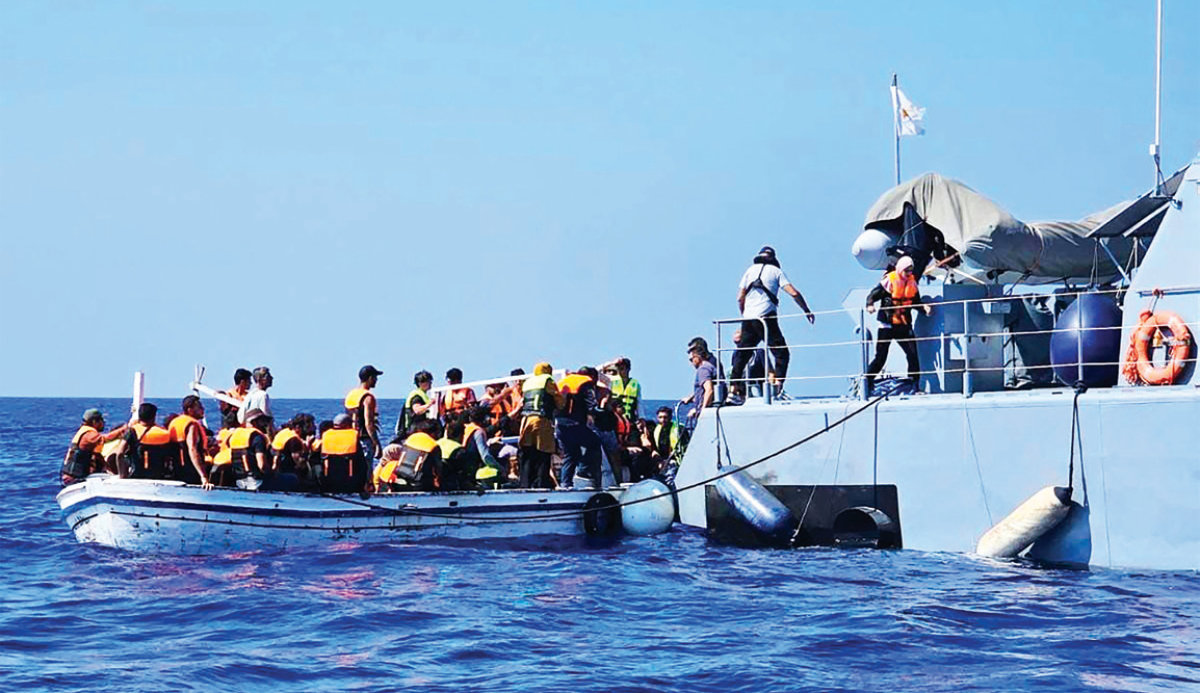
Earlier this month, Cyprus expressed concern over the sudden surge in arrivals of Syrian refugees from Lebanon. With more than 600 Syrians crossing in small boats, the island’s reception capacity has reached breaking point, Reuters reported.
Shaar suspects “the number will only increase going forward as the situation becomes worse and worse” in Lebanon.
Diab of the Institute for Migration Studies at LAU said that “while sea journeys to Europe may seem like the only option for some Syrian refugees in Lebanon, safe alternatives do exist in theory — albeit a much slower process that many refugees cannot afford to wait for.”
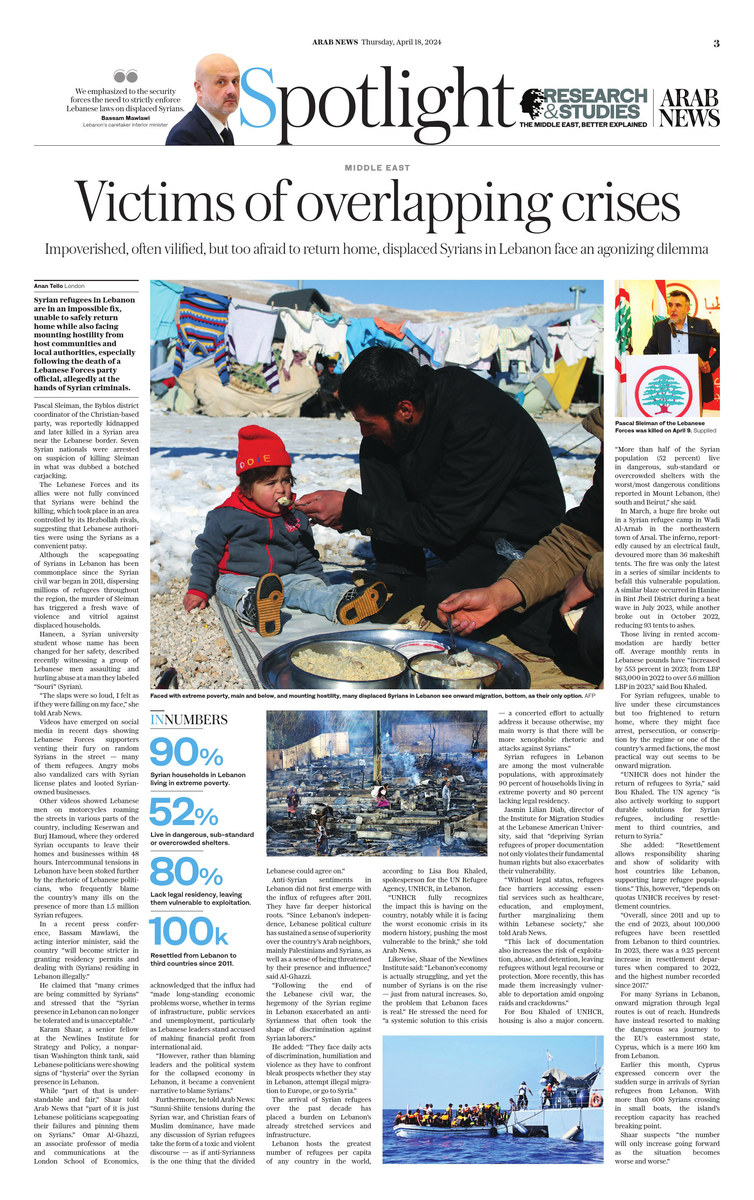
Kings of Jordan, Bahrain discuss Arab cooperation on regional issues
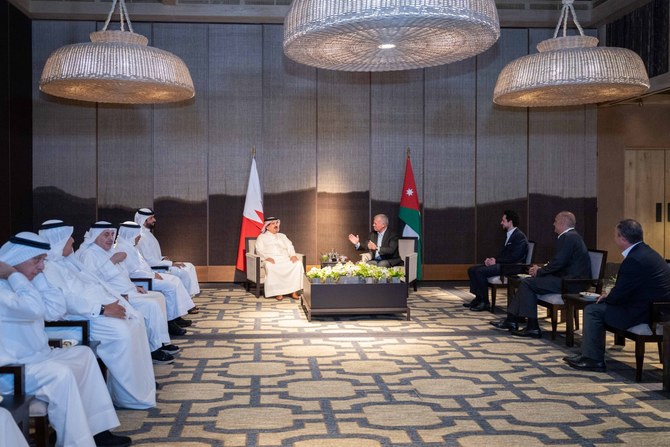
- The meeting highlighted the importance of the upcoming Arab League Summit
AMMAN: Jordan’s King Abdullah II and Bahrain’s King Hamad bin Isa Al-Khalifa met in Aqaba on Wednesday to discuss Arab solidarity and coordination, the Jordan News Agency reported.
The meeting highlighted the importance of the upcoming Arab League Summit, which opens in the Bahraini capital Manama on May 16, in the light of the challenges now facing the region.
King Abdullah praised Bahrain's efforts in organizing the event.
At the meeting, which was also attended by Jordan’s Crown Prince Hussein bin Abdullah, the leaders emphasized the strong ties between Jordan and Bahrain and expressed their commitment to further cooperation and economic integration.
King Hamad commended Jordan for its role in promoting peace in the region and its support for Arab and Islamic causes, especially the Palestinian issue.
The leaders stressed the urgent need for international intervention to achieve a ceasefire agreement in Gaza and called on the UN Security Council to take immediate action to protect civilians, ensure the delivery of humanitarian aid and prevent the conflict from escalating.
They also voiced their opposition to any actions that might widen the conflict, including the Israeli ground offensive in Rafah or the displacement of Palestinians.



